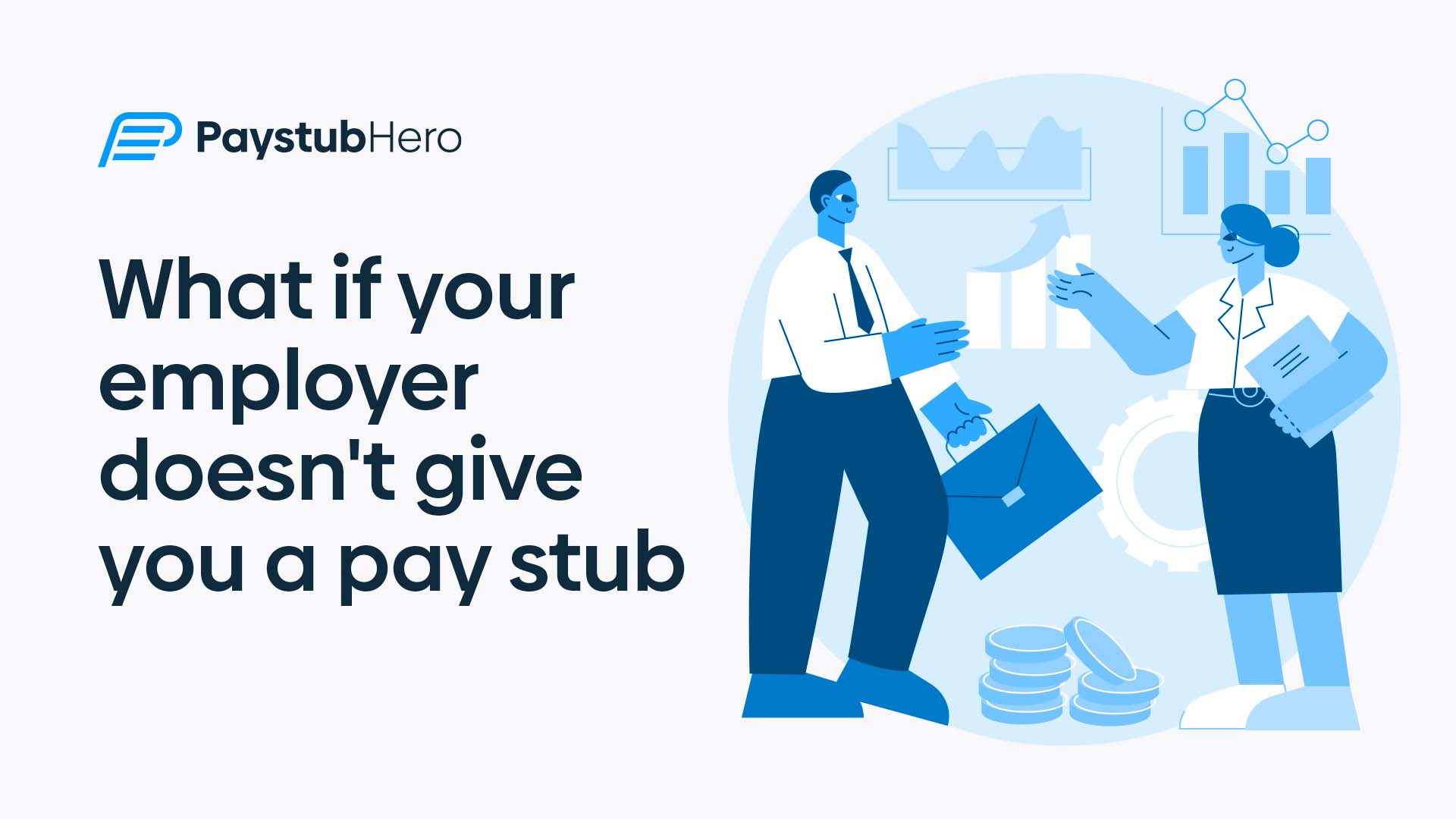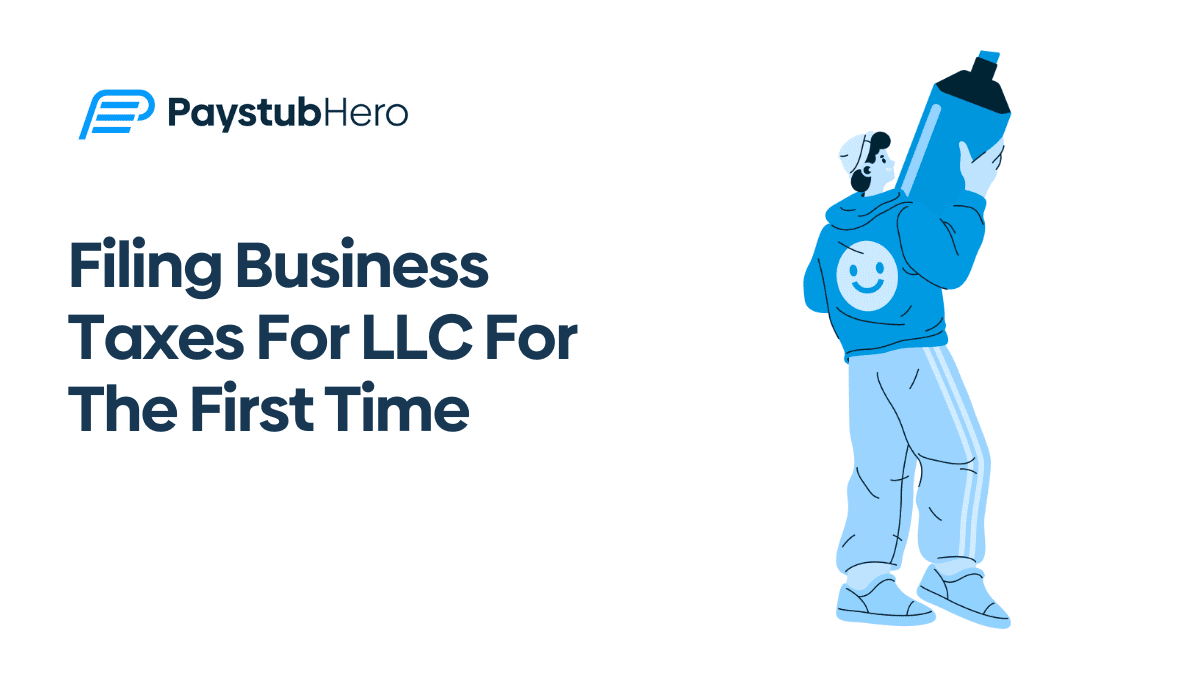What if your employer doesn’t give you a pay stub? This situation can be concerning, as pay stubs play a crucial role in understanding your earnings, deductions, and ensuring transparency in your financial transactions with your employer. The world of work can be as rewarding as it is complex. Employees clock in and out, contributing their skills, talents, and time to build value for their employers.
In return, they receive compensation, often biweekly or monthly, signified by the much-anticipated payday. This remuneration is typically accompanied by a seemingly simple but crucial piece of documentation—the pay stub.
The pay stub, also known as a pay slip or paycheck stub, serves as a record of an employee’s earnings and deductions. This seemingly mundane piece of paper carries significant weight, providing vital information for both the employer and employee.
But what happens when this essential document doesn’t make its way to your hands? What are the implications, and more importantly, what are your options? These are the questions that arise when you’re faced with a peculiar scenario: What if your employer doesn’t give you a pay stub?
In this article, we’ll delve into the importance of pay stubs, potential consequences of not receiving one, and the steps you can take to remedy the situation.
Whether you’re an employee, an independent contractor, or even an employer, this piece will shed light on the value of pay stubs and the necessity of proper wage documentation in today’s work environment.
Table of Contents:
- Introduction: What if Your Employer Doesn’t Give You a Pay Stub?
- Unpacking the Significance: Understanding the Importance of a Pay Stub
- Taking the Bull by the Horns: Possible Solutions to Actively Seek Pay Stubs
- The Digital Solution: Making Use of Technology for Online Paystubs
- Navigating the Legal Landscape: Legality and State Laws Regarding Pay Stubs
- Stepping Back in Time: Retrieving Old Paystubs Online
- The Bottom Line: Your Pay Stub, Your Right
- Call to Action: Your Solution with Paystubhero
Unpacking the Significance: Understanding the Importance of a Pay Stub
At its core, a pay stub is a detailed breakdown of an employee’s earnings for a particular pay period. But this document offers much more than a cursory glance at your income. Pay stubs contain information about gross wages, deductions, taxes, and net pay. They are pivotal in maintaining financial transparency between employers and employees.
In more concrete terms, a pay stub is your financial compass. It enables you to navigate your earnings, helping you understand how much you’re making, where your money is going, and how much is left after deductions.
This critical piece of paper forms the backbone of your financial planning, guiding your budgeting strategies, and providing crucial insight into your income flow.
Moreover, pay stubs are often required when applying for loans or credit, as they serve as proof of consistent income. They help lenders determine your ability to repay, thereby increasing your chances of approval. In the absence of a pay stub, such processes may become convoluted and challenging.
Lastly, pay stubs facilitate accurate tax filing. They detail the amount of tax withheld from your paycheck, preventing any surprises during tax season. Without a pay stub, you may find it difficult to file your taxes correctly, potentially leading to fines or penalties.
So, when the question arises, “What if your employer doesn’t give you a pay stub?”—it’s not just about missing a piece of paper.
It’s about missing a crucial tool that aids in financial management, establishes income proof, and ensures accurate tax filing.
Taking the Bull by the Horns: Possible Solutions to Actively Seek Pay Stubs
Addressing the issue of not receiving a pay stub from your employer demands a proactive approach. It is important to not let this situation slide, as doing so could potentially lead to complications and misunderstandings in the future.
The first course of action should be having a direct conversation with your employer or the Human Resources department. Remember, communication is often the key to resolving most workplace issues.
Articulate your concerns clearly and professionally, making it known that you need your pay stub for both personal and legal reasons. In many instances, employers might be oblivious to the stress caused by not providing pay stubs, and your prompt might encourage them to rectify the situation.
In the event that your employer uses an online payroll system, it may be possible that your pay stubs are available electronically, and you were simply unaware. Request for guidance on how to access your online wage statements.
An increasing number of companies are going paperless, so it could be that your pay stubs are just a few clicks away.
It’s also worth considering whether there is a company portal or intranet where pay stubs are typically posted. If you’re new to the company or unfamiliar with the payroll procedures, there might be resources available to you that you aren’t utilizing.
However, should your employer be unresponsive or reluctant to provide pay stubs, it may be time to consult with a labor board or legal expert. In many jurisdictions, it’s a legal requirement for employers to provide pay stubs. Don’t shy away from seeking legal counsel if you feel your rights are being infringed upon.
Navigating a situation where your employer doesn’t provide a pay stub can be stressful and confusing. However, by taking decisive action, initiating open conversations, and utilizing available resources, you can often find a resolution.
The Digital Solution: Making Use of Technology for Online Paystubs
In today’s digital age, technology provides solutions to many problems, and missing pay stubs are no exception. If your employer doesn’t provide pay stubs or if they’re difficult to access, online resources can offer a practical workaround.
Online pay stubs, or e-pay stubs, have become increasingly popular, offering a secure and convenient alternative to traditional paper stubs. The concept is simple; rather than receiving a physical pay stub, you gain access to your wage statement online, often through a secure website or email.
Various online platforms exist that offer services to generate and access pay stubs digitally. These ‘my online paystub’ platforms provide an easily navigable interface, allowing you to view and download your wage statements at your convenience.
E-pay stubs have numerous benefits. Firstly, they’re environmentally friendly, eliminating the need for paper and reducing the company’s carbon footprint. Moreover, they’re easily accessible. You can view your pay stubs from anywhere, provided you have internet access.
Additionally, online pay stubs minimize the risk of losing or damaging your wage statements, as they’re safely stored in the digital realm. This ensures you always have access to your financial records, vital for budgeting or when proof of income is needed.
Finally, e-pay stubs are usually password protected, ensuring that your sensitive information remains confidential and secure.
It’s important to note that while technology provides a fantastic solution, it’s crucial to verify the legitimacy and security of the online platforms you choose to use. Be sure to use reputable services that prioritize user privacy and data protection.
Remember, your pay stub contains sensitive personal and financial information, and it’s essential to keep this information secure.
Navigating the Legal Landscape: Legality and State Laws Regarding Pay Stubs
In the context of an employer not providing pay stubs, it’s crucial to understand the legal implications and requirements that exist within your specific jurisdiction. Across the United States, laws regarding pay stubs vary widely from state to state, with some mandating pay stub provision while others are more lax.
In certain states, employers are legally required to provide employees with a physical or digital pay stub each pay period. These laws have been put in place to ensure transparency and fairness in wage payment, protecting the rights of employees. If you’re employed in one of these states and you’re not receiving your pay stub, your employer could potentially be in violation of state laws.
In contrast, there are states where no such requirements exist, and employers aren’t mandated to provide pay stubs. However, in these cases, they are usually required to keep detailed payroll records which you, as an employee, have the right to access upon request.
To understand your rights and your employer’s obligations, familiarize yourself with the specific labor laws of your state. Resources like state labor department websites, legal aid societies, or employment attorneys can provide guidance and help you navigate these legal nuances.
If your employer fails to provide pay stubs despite being legally obligated to do so, it may be time to escalate the issue. Filing a complaint with your state’s labor department could be a necessary step. Remember, you have rights as an employee, and it’s essential to advocate for those rights when they’re not being respected.
In summary, the intersection of pay stubs, legality, and state laws is a complex one. Understanding the specifics of your jurisdiction can empower you in your quest to access your pay stubs, ensuring that you remain informed and proactive in asserting your rights.
Stepping Back in Time: Retrieving Old Paystubs Online
Now that we’ve navigated the waters of not receiving current pay stubs, let’s explore another common dilemma: retrieving old paystubs. Whether it’s for record-keeping, tax filing, or loan application purposes, having access to past pay stubs is often crucial.
In an ideal world, your employer would provide you with a copy of each pay stub, which you’d diligently file away for future reference. However, we all know that things don’t always go as planned. Perhaps you’ve misplaced some pay stubs or your employer failed to provide them in the past. Whatever the reason, being without a needed pay stub can feel like you’re stuck between a rock and a hard place.
Fortunately, thanks to advancements in technology, it’s now easier than ever to retrieve old pay stubs online. Various platforms offer guides and services that assist you in recovering past pay stubs. Following the steps on ‘how to get old paystubs online’ can lead you to the information you need.
However, it’s important to note that your success in retrieving old pay stubs largely depends on your employer’s payroll management system. If they use an online system, the chances are that your pay stub history has been stored and can be accessed upon request.
Also, keep in mind the security implications when accessing and downloading pay stubs online. Always ensure you’re using a secure network connection to protect your personal and financial information from potential cyber threats.
While the process may seem daunting, remember that patience and persistence often pay off. With the right tools and resources, you can retrieve those old pay stubs and get your financial records back on track.
The Bottom Line: Your Pay Stub, Your Right
In conclusion, your pay stub is much more than a receipt of your hard-earned wages—it’s a fundamental part of your financial well-being and your professional rights. It serves as a transparent record of your income, helping you track your earnings, manage your budget, and plan for the future.
Navigating a scenario where your employer does not provide a pay stub can be daunting, and it’s easy to feel lost in the confusion. However, by taking proactive steps and utilizing available resources, you can ensure that your rights are protected and your financial health remains robust.
Don’t underestimate the power of communication. A simple conversation with your employer or HR department can often resolve the issue.
However, if your concerns are dismissed or unresolved, don’t shy away from seeking legal advice. Your right to a pay stub is not just about understanding your earnings—it’s about standing up for your rights as an employee.
Moreover, the digital world offers a wealth of resources to ensure your access to pay stubs, both current and past. From online platforms that generate pay stubs to guides on retrieving old pay stubs online, technology provides innovative solutions for those seemingly insurmountable hurdles.
But remember—while online services can be a lifeline, it’s crucial to use them wisely. Always ensure you’re using secure, reputable platforms to protect your sensitive information.
Lastly, don’t forget the important role of knowledge and awareness. Understanding your state’s labor laws and your rights as an employee gives you the upper hand in any employment-related issues. Being an informed employee means you’re not just working hard, but also working smart.
In essence, if your employer doesn’t give you a pay stub, remember that you have tools, resources, and rights at your disposal. While the journey might be challenging, it’s your steadfast resilience and informed approach that will ultimately pave the way to resolution.
Frequent Asked Questions
- Can I request a pay stub from my employer?
- Yes, you can. It’s your right as an employee to request a pay stub from your employer. Communicate your need directly and professionally.
- How do I get my pay stub if I have direct deposit?
- Pay stubs for direct deposit often come electronically. Check with your employer or HR department about accessing your online wage statements.
- Can you get your pay stubs from your bank?
- Banks typically do not provide pay stubs. They can confirm deposits made to your account, but for detailed pay stubs, it’s best to contact your employer.
- How often are paycheck stubs provided?
- Paycheck stubs are usually provided each pay period, whether that’s weekly, bi-weekly, or monthly. It depends on your company’s payroll schedule.








